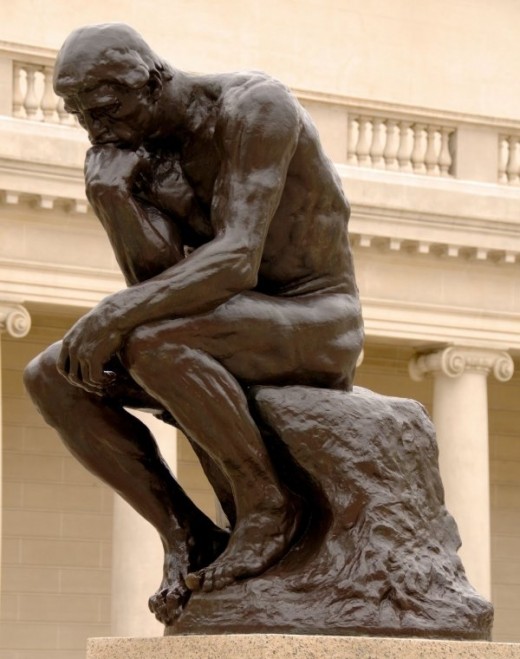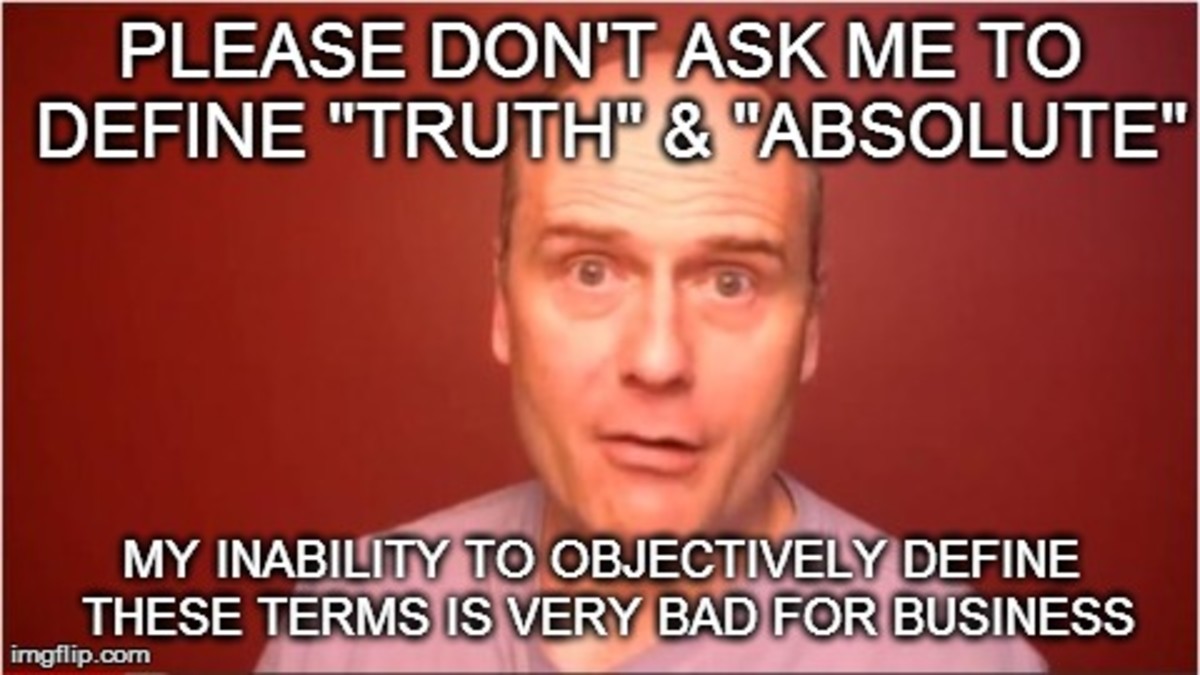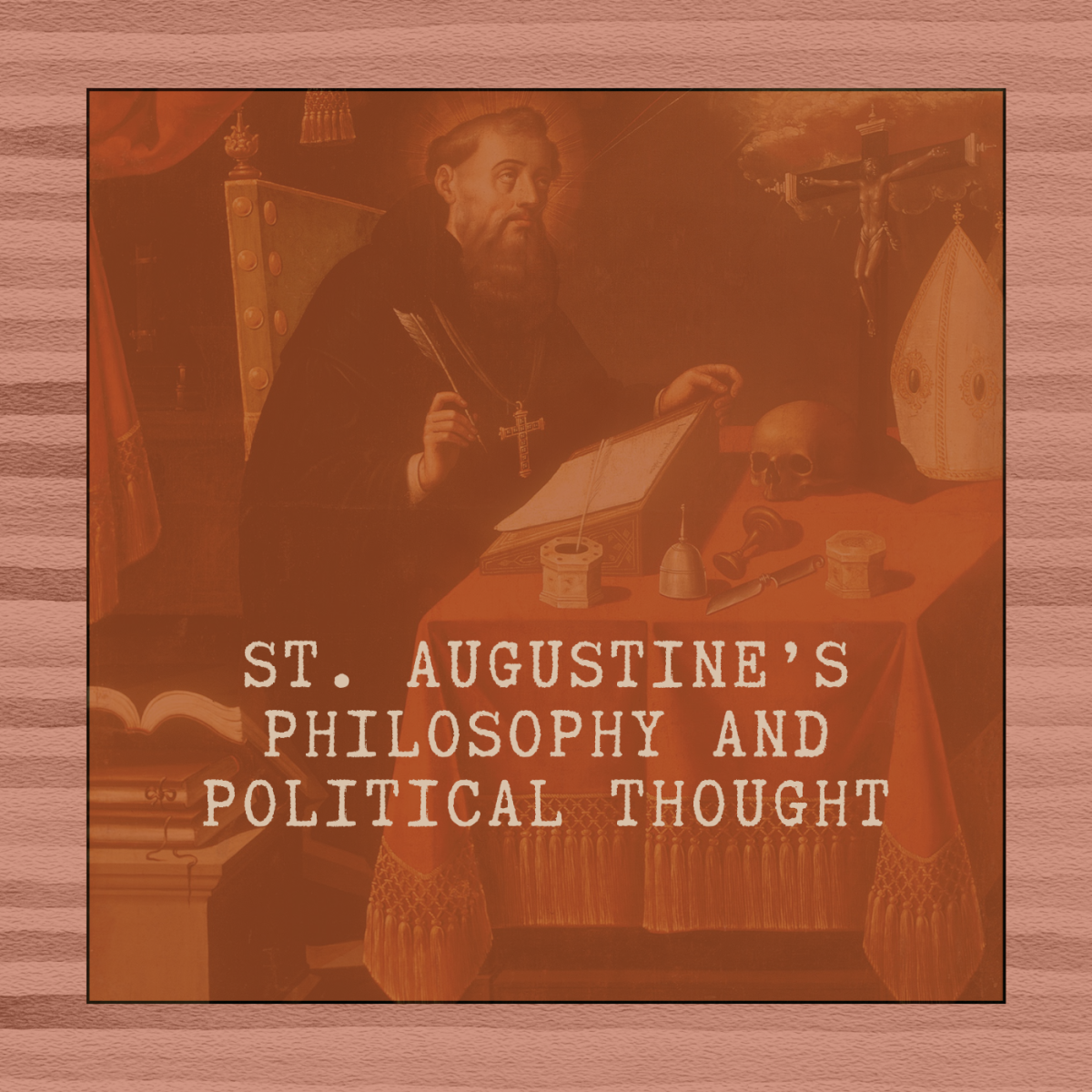Philosophy - Musings on Life in the 21st Century.

Thoughts on Life and Philosophy
Philosophical Musings
“You can get everything in life you want if you will just help enough other people get what they want.” – Zig Ziglar
“Time is the best teacher, but unfortunately, it kills all of its students.” – Robin Williams
This hub is dedicated to the force of Love, the vital force of the universe.
It’s not all about the Benjamins – by Reddawg2012.
It’s not “all good”. What it is all about is being kind to one another. I hereby declare the term “common courtesy” obsolete, for the sad truth is that courtesy is all too uncommon in this the 21st century, and has been for some time now. The same goes for the term “common sense”. People display sense so seldom these days, it can hardly be considered common. On those occasions when someone is courteous to you, or behaves as though they have some sense, please consider commending them for their uncommon courtesy, or their uncommon sense, as the case may be.
Let’s think about living by the Golden Rule: “Do unto others as you would have them do unto you.” Let’s stop living by the philosophy of “Do unto others, then split”. “Livin’ large” is about stooping to help a homeless or abused child, or any child – any person, for that matter. Perhaps it’s time to consider building people up, and stop tearing them down. Each one of us is a link in the chain of humanity, and when we attack one another, we weaken the entire chain. Do something nice for someone, without taking anything in return for doing so. You will most likely feel a little something called happiness. If not, you have probably made up your mind to be unhappy. Consider changing your mind.
Why is it so easy for many of us to tear into one another and call each other obscene names, but so difficult to tell someone we care about the way we feel about them, to say kind things? So easy to tell people off, but so hard to look our loved ones in the eyes and say, “I love you?” Volunteer some of your time to help the homeless, abused women and children, the starving, or the sick. Instead of buying some more “bling”, donate the money to one of these, or another worthy cause. The world will be a better place, thanks to you. Now that is off the charts. That’s representin’.
A look at historical philosophers.
Voltaire: Voltaire did not believe that any single religious text or tradition of revelation was needed to believe in God. Voltaire’s focus was rather on the idea of universal laws, demonstrable, and in the main, still waiting to be discovered in the physical world as well as those of the moral world, underlying every religious system, along with respect for nature reflecting the contemporary pantheism. On the subject of religious tolerance: In a 1763 essay, Voltaire supported the toleration of other religions and ethnicities: “It does not require great art, or magnificently trained eloquence, to prove that Christians should tolerate each other. I, however, am going further: I say that we should regard all men as our brothers. What? The Turk my brother? The Chinaman my brother? The Jew? The Siam? Yes, without doubt; are we not all children of the same father and creatures of the same God?
Kierkegaard: One of Kierkegaard’s recurrent themes is the importance of subjectivity, which has to do with the way people relate themselves to (objective) truths. In Concluding Unscientific Postscript to Philosophical Fragments, he argues that “subjectivity is truth” and “truth is subjectivity.” What he means by this is that most essentially, truth is not just a matter of discovering objective facts. While objective facts are important, there is a second and more crucial element of truth, which involves how one relates oneself to those matters of fact. Since how one acts is, from the ethical perspective, more important than any matter of fact, truth is to be found in subjectivity rather than objectivity.
Arthur Schopenhauer was a German philosopher who was known for his pessimism and philosophical clarity. He published his doctoral dissertation, “On the Fourfold Root of the Principle of Sufficient Reason”, which examined the four separate manifestations of reason in the phenomenal world. His most influential work, “The World as Will and Representation”, claimed that the world is fundamentally what humans recognize in themselves as their will. His analysis of this concept led him to the conclusion that emotional, physical, and sexual desires can never be fully satisfied. The corollary of this is an ultimately painful human condition. Schopenhauer’s metaphysical analysis of will, his views on human motivation and desire, and his aphoristic writing style influenced many well-known thinkers.
I say: Treat others the way you would like to be treated. Assuming, of course, that you like to be treated well. Help and love one another. We’re all in this together.
To explore the subject matter further, we may pivot to the subject of humanistic philosophy. The humanistic tradition in philosophy concentrates on the central issue of philosophy, the search for the good life. Humanistic philosophy helps people to make decisions concerning various issues in their lives, such as whether or not to marry, which religion, if any, to practice, which career to choose, etc.
Perhaps a definition of terms would be in order at this point. Epistemology is derived from the Greek words EPISTEME, which means knowledge, and LOGOS, which means the study of. Epistemology is the study of knowledge. It attempts to establish the criteria by which we may distinguish between truth and illusion. If we were to view philosophy as a tree, epistemology would be the roots of the tree. While philosophizing, we are constantly claiming that certain facts are true and that other “facts” are false. We can make these claims only after we have established some criteria for distinguishing between truth and falsity. For some people, the criteria will be the use of our five senses. For others, the criteria might be the intellect’s ability to intuitively grasp the truth or falsity of the claim. Later in this hub, we will see that there are many criteria.
The trunk of the tree is metaphysics. The word is derived from the Greek words META, which means beside or beyond and PHYSIKOS, which means nature. Metaphysics analyzes the nature of reality. But it goes beyond the physical sciences. The physical sciences only study that part of reality which is shown to us by our five senses. Metaphysics makes generalizations about all of reality. These generalizations cannot be justified by direct sense experience. Metaphysics is divided into four major subgroups: cosmology, ontology, theology, and philosophical anthropology. Cosmology (from the Greek COSMOS, which means the universe) is that branch of metaphysics which analyzes the nature of the physical universe. It goes beyond the science of physics because it inquires into the ultimate nature and the cause of the universe. When physicists like Albert Einstein set forth theories concerning the ultimate nature of the universe, they become cosmologists.
Ontology (from the Greek ONTOS which means existence or being) analyzes the nature of existence. If we were to distinguish between those things which exist and those which do not exist, ontology studies that characteristic which is held in common by those things which do exist. It distinguishes between the various senses of the word existence. It attempts to answer the most profound of all questions: Why is there something rather than nothing at all?
Theology (from the Greek THEOS meaning God) is that branch of metaphysics which attempts to prove the existence of God. It also analyzes the nature of God. If we decide that God’s existence can be proven, and that God’s nature can be known, our theology will directly affect our search for the good life. We would possibly decide that the good life consists of being godlike. Philosophical anthropology (from the Greek ANTHROPOS meaning human beings) inquires into the characteristics which all humans have in common. It distinguishes between those characteristics we exhibit because we happen to live in some particular society, as opposed to those characteristics we exhibit because we are human beings. It is especially interested in discovering the most important or highest human potential.
Ethics (from the Greek ETHOS meaning character) is that branch of philosophy which directly seeks to discover the good life. If we know what is the highest human potential, then it becomes evident that the good life consists of actualizing our highest potential. Our ethics flow directly from our philosophical anthropology. Through the study of ethics, we attempt to discover the purpose of our lives. We are able to distinguish between those actions which are morally proper and those which are morally improper. It should be evident that everyone already has an ethics. The purpose of our analysis is to develop a critical rather than a dogmatic ethics. A critical ethics means that we ourselves have made the basic decisions concerning our lives. We would be following a dogmatic ethics if we allowed someone else to make our decisions for us. Another reason for studying ethics is to render our ethical decisions more rational and systematic. Most ethical systems begin with a few ethical principles from which all other principles can be derived. The fewer the starting principles, the more systematic our ethics will be. I would strongly urge everyone to begin his or her study of philosophy by writing down the starting principles of his or her ethics. Next, he or she should attempt to deduce all his or her ethical principles from his or her starting principles. Finally, he or she should attempt to ground his or her ethics in his or her philosophical anthropology. If we lived as hermits n the wilderness, our philosophical task would be completed once we constructed our personal ethics.

More
“We are all here for a spell; get all the good laughs you can.” – Will Rogers
If we live in a society, however, we will need to extend our personal ethics into a social philosophy. Because our own happiness and moral well-being is effected by the society in which we live, we must decide what type of society would best facilitate our happiness and moral development. We would raise the question as to which type of government is best. Some of the alternatives are: pure democracy, representative democracy, oligarchy, and dictatorship. We would also raise the question as to which type of economy would best suit the needs of the people. Capitalism, communism, and feudalism are the three major candidates.
Having defined the primary divisions of philosophy, it is now necessary to attempt to define philosophy itself. The word is derived from the two Greek words Philos, which means love, and Sophia, which means wisdom. Philosophers have traditionally interpreted the word as meaning the “love of wisdom.” The word “wisdom” is derived from the Greek IDEN meaning to see, and EIDOS meaning form. Wisdom consists in seeing the form of things or grasping the essence of things. Thus a philosopher loves to grasp the essence of things. Understanding the purpose of our own lives, and therefore knowing what to do with our lives, is almost certainly the most important of the essences we will want to grasp. If we interpret the word philosophy as meaning the love of wisdom, the word raises an extremely important question: What is the purpose of our lives? The word might also be interpreted as answering that question. Philosophy might be interpreted as meaning the wisdom of love. Perhaps the ancient Greeks who coined the word intended to indicate that the purpose of life is to unlock the gentle but awesome power of love. The fact that they intended this, if in fact they did, does not of course mean that the purpose of life is to learn how to love. We cannot draw conclusions concerning the purpose of life merely from the etymology of a word. After completing this hub, however, the reader might conclude that indeed the purpose of life is to learn how to love.
I believe that the purpose of life is to learn how to love. There are six major stages that occur in the development of our ability to love. Each of these is a perspective from which love and life can be viewed. In the first three stages, there is a refinement in our sense of selfhood. In the final three stages, there is an expansion of the sense of selfhood. The first perspective from which we view life is called the Alpha perspective (the perspectives are named after the first five letters and the last letter of the Greek alphabet). An Alpha person loves himself. His sense of selfhood is defined in terms of his security needs (both physical and emotional security). His personhood is reduced to to his search for security. If he achieves a sense of security, it is achieved by reason of his association with other people, especially a family of some type. The Alpha person would say that he loves the other members of his family, and rightly so. But, strictly speaking, he needs them. He needs them to achieve what he is lacking: security.
The Beta person is also seeking self-fulfillment (self-love.) For him, self-fulfillment is identified with a sense of achievement. He is driven by a desire to have something to show for his life. Whatever he achieves, he believes he must accomplish on his own, unlike the Alpha person who allows people to give him his security. The Beta person does, however, allow other people to determine the extent of his achievement. His sense of selfhood is therefore, like the Alpha person, dependent upon others.
The Gamma person does not allow others to give him his sense of selfhood, as the Alpha person does, nor does he allow others to determine the degree of his success, as the Beta person does. He fulfills his own needs, determines his own successes, and defines himself. In fact, he defines himself in terms of his independence and individuality. For the Gamma person, the purpose of life is to become a true individualist. Only in the Gamma perspective do we discover a self-created self. Thus the process of refining the self finds its culmination in the Gamma stage. We also find in this stage an honest acceptance of the concept of self-love.






